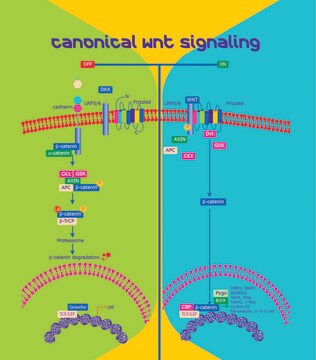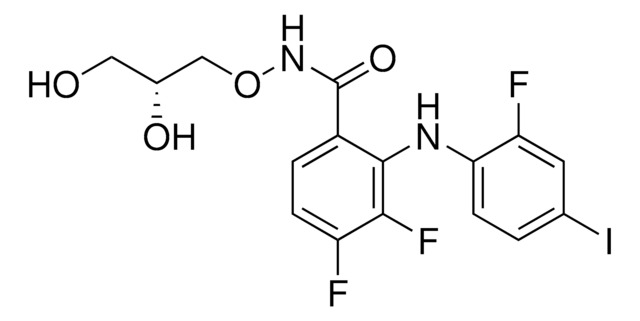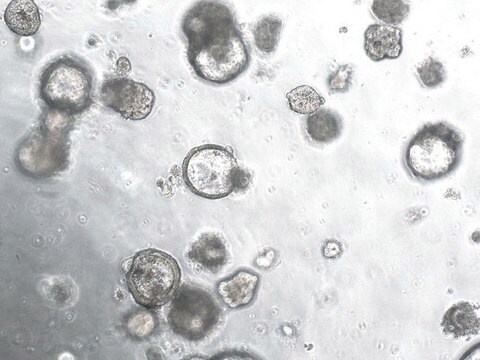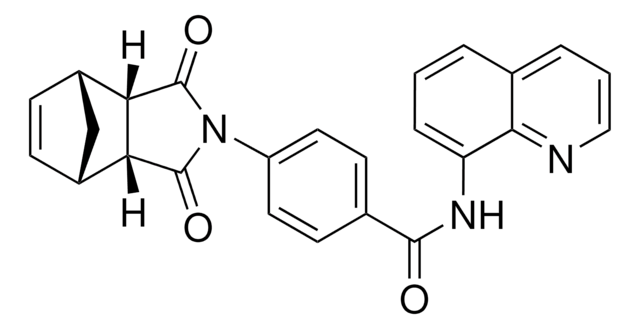681665
Wnt Agonist
The Wnt Agonist, also referenced under CAS 853220-52-7, controls the biological activity of Wnt. This small molecule/inhibitor is primarily used for Cancer applications.
Synonym(s):
Wnt Agonist, 2-Amino-4-(3,4-(methylenedioxy)benzylamino)-6-(3-methoxyphenyl)pyrimidine, Wnt Pathway Activator I
About This Item
Recommended Products
Quality Level
Assay
≥95% (HPLC)
form
solid (sticky)
manufacturer/tradename
Calbiochem®
storage condition
OK to freeze
protect from light
color
yellowish
solubility
DMSO: 10 mg/mL
ethanol: 5 mg/mL
shipped in
ambient
storage temp.
2-8°C
InChI
1S/C19H18N4O3/c1-24-14-4-2-3-13(8-14)15-9-18(23-19(20)22-15)21-10-12-5-6-16-17(7-12)26-11-25-16/h2-9H,10-11H2,1H3,(H3,20,21,22,23)
InChI key
FABQUVYDAXWUQP-UHFFFAOYSA-N
General description
Biochem/physiol Actions
Selective activator of Wnt signaling
Packaging
Warning
Reconstitution
Other Notes
Legal Information
Storage Class Code
11 - Combustible Solids
WGK
WGK 3
Flash Point(F)
Not applicable
Flash Point(C)
Not applicable
Certificates of Analysis (COA)
Search for Certificates of Analysis (COA) by entering the products Lot/Batch Number. Lot and Batch Numbers can be found on a product’s label following the words ‘Lot’ or ‘Batch’.
Already Own This Product?
Find documentation for the products that you have recently purchased in the Document Library.
Customers Also Viewed
Our team of scientists has experience in all areas of research including Life Science, Material Science, Chemical Synthesis, Chromatography, Analytical and many others.
Contact Technical Service









